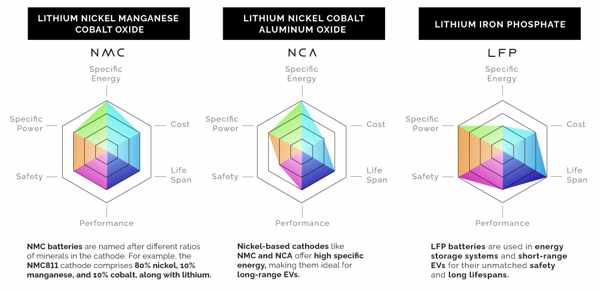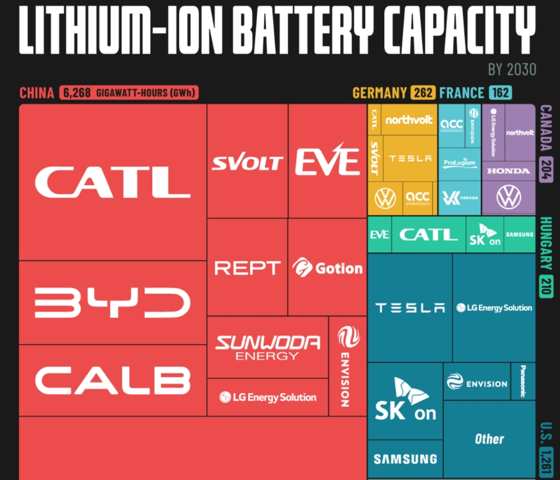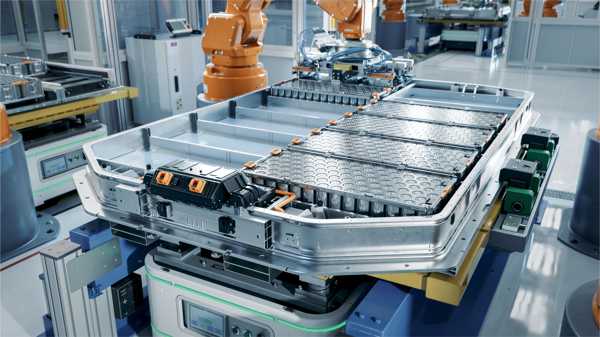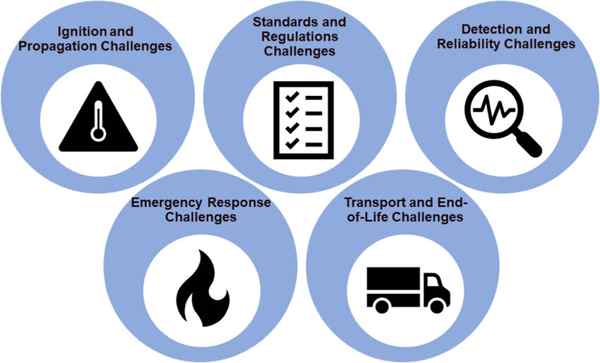Wer macht die beste Lithium -Ionen -Batterie?
Okay, Sie sind auf der Suche nach dem "Besten"" Lithium-Ionen-Akku, Rechts? Es fühlt sich wie eine einfache Frage an, Aber die Wahrheit ist, Der Markt ist voller Optionen, Und jeder Hersteller behauptet, er sei Top-Dog. Dies kann dazu führen, dass sich jeder etwas verloren fühlt. Was ich gelernt habe ist das "Beste" Batterie ist keine einheitliche Sache; Es hängt wirklich davon ab, wofür Sie es brauchen.
Also, Wer macht das "Beste" Lithium-Ionen-Akku? Also, Es gibt keinen einzigen Champion für jedes Szenario. Große Namen wie Catl, LG Energy -Lösung, Panasonic, BYD, und Samsung SDI produzieren alle hervorragende Zellen der Qualitätsqualität. Jedoch, der beste" für Du hängt von einer Mischung von Faktoren ab. Suchen Sie eine super hohe Energiedichte für ein leichtes Gerät?? Oder vielleicht die maximale Lebensdauer für ein Sonnenenergiesystem? Sicherheit, kosten, Und selbst die spezifische Aufgabe, die die Batterie leistet - wie das Einschalten eines Elektrofahrzeugs im Vergleich zu einem Haushaltsbackup - spielen alle große Rollen bei der Definition, was "am besten ist" bedeutet.

Hier bei GYCX Solar, Wir verbringen viel Zeit damit, herauszufinden, welche Batterien für die Solarenergiesysteme unserer Kunden geeignet sind.
Es geht nicht nur darum, eine Marke auszuwählen; Es geht darum, die Technologie im Inneren zu verstehen und wie sie Ihren Energiezielen entspricht. Lassen Sie uns ein bisschen tiefer in das eintauchen, was einige Herstellerführer ausmacht und wonach Sie wirklich suchen sollten.
Wer ist weltweit führend in Lithium-Ionen-Batterien??
Ich frage mich, welche Unternehmen wirklich im Vordergrund der Welt der Lithium-Ionen-Batterie stehen? Es ist selbstverständlich zu wissen, wer das Rudel in Bezug auf Produktion und Innovation anführt. Die globale Bühne hat mehrere wichtige Spieler, jeweils mit seinen eigenen Stärken.
Wenn wir über Weltführer sprechen, Unternehmen wie Catl (Zeitgenössische Amperex -Technologie Co. Beschränkt) aus China haben sich wirklich einen Namen gemacht, Besonders im Elektrofahrzeug (EV) Batteriemarkt, konsequent einen massiven globalen Marktanteil halten (Quelle: Blackridge Research & Beratung, CNEVPOST, Sneene Forschung, Jan-Feb 2025 Daten).
Dann haben Sie eine LG Energy -Lösung aus Südkorea, Panasonic aus Japan (berühmt für ihre langjährige Partnerschaft mit Tesla), Byd aus China (die auch groß sind und ihre eigene "Blade -Batterie" machen), und Samsung SDI, ein weiterer südkoreanischer Riese. Diese Unternehmen sind stark in Forschung und Entwicklung investiert, ständig die Grenzen der Batterie -Technologie überschreiten.

Aber was macht "Weltführer"?" meine eigentlich für dich? Für uns bei GYCX Solar, Es geht um mehr als nur bloße Lautstärke. Wir schauen uns an, wer in Bereichen, die für die Solarspeicherung von Bedeutung sind, durchweg innovativ ist - wie die Verbesserung der Lebensdauer und der Sicherheit von LFP (Lithium -Eisenphosphat) Batterien, Die sind eine fantastische Wahl für Home Energy Systems.
Marktanteil ist eine Sache, aber technologischer Fortschritt, Qualitätskontrolle, Und ein Engagement für nachhaltige Praktiken ist das, was die Führung in unseren Augen wirklich definiert. Zum Beispiel, Catl und Byd machten über 55% des globalen EV -Batteriemarktes frühzeitig 2025 (Quelle: CNEVPOST, Jan 2025). LG Energy -Lösung, Panasonic, und SK on sind auch wichtige Kräfte, Lieferung von Batterien an zahlreiche globale Autohersteller und für verschiedene Energiespeicherprojekte (Quelle: Sneene Forschung, PCBASIC). Die Landschaft ist dynamisch, mit chinesischen Herstellern, insbesondere, zeigen signifikantes Wachstum und Kapazität. Gotion High-Tech, Kahl, Eva Energie, und Sunwoda sind andere chinesische Unternehmen, die häufig in der Spitze auftreten 10 für Marktanteile.
Dieser intensive Wettbewerb kommt den Verbrauchern zugute, indem sie Innovation vorantreiben und, hoffentlich, Kosten im Laufe der Zeit senken. Wenn wir Batterien für unsere Solarlösungen auswählen, Wir suchen nach dieser nachgewiesenen Erfolgsbilanz der Zuverlässigkeit und der zukunftsorientierten Technologie, die sich mit der langfristigen Energieunabhängigkeit entspricht.
Wer macht die am längsten dauerhafte Lithiumbatterie?
Wenn Sie in Batterien investieren, Besonders für so etwas wie ein Sonnenstromsystem, Sie möchten auf jeden Fall, dass sie so lange wie möglich dauern. Also, Wer macht den Akku, der einfach weiter geht?? Die Antwort ist etwas nuancierter, als nur einen einzelnen Hersteller zu benennen. Es geht wirklich um die spezifische Chemie innerhalb der Batterie und die Gesamtqualität der Herstellung und Verwaltung.
"Längste Dauer" zeigt oft auf eine bestimmte Art von Lithium-Ionen-Chemie namens LFP, oder Lithium -Eisenphosphat. Diese Batterien sind bekannt für ihre hervorragende Zykluslebensdauer, Das heißt, sie können viel mehrmal (Nickel Mangan Kobalt) bevor sie anfangen, erhebliche Kapazitäten zu verlieren.
Unternehmen, die sich spezialisiert haben LFP -Batterien1, insbesondere für Anwendungen wie Energiespeichersysteme (ESS) oder starker industrieller Gebrauch, bieten diejenigen wahrscheinlich einige der längsten betrieblichen Lebensspannen. Zum Beispiel, LFP -Batterien können erreichen 2,500 über 9,000 Zyklen für Ladungspflicht, Während NMC -Batterien umgeben könnten 1,000 Zu 3,000 Fahrräder (Quelle: Die getrieben, Evlithium).

Also, Was wirklich zur Langlebigkeit einer Batterie beiträgt?
Erste, wie erwähnt, Die Chemie ist der Schlüssel. LFP ist im Allgemeinen robuster für ein tiefes Radfahren über viele Jahre.
Zweitens ist die Zellqualität selbst - dies hängt von der Präzision des Herstellungsprozesses und der Reinheit der verwendeten Materialien ab. Top-Tier-Hersteller investieren hier stark. Dritte, Und das ist entscheidend, ist das Batteriemanagementsystem (BMS).
Ein ausgefeiltes BMS schützt die Batterie vor Dingen, die sein Leben verkürzen, Wie Überladen, Überdünnung, und extreme Temperaturen. Es hilft auch, alle Zellen innerhalb des Akkus ausgewogen zu halten. Endlich, Wie Sie die Batterie verwenden, ist es wichtig 100% ständig aufladen (Besonders für NMC) kann sein Leben verlängern.
Bei GYCX Solar, Wenn wir ein Sonnenenergiesystem entwerfen, Wir priorisieren LFP -Batterien von seriösen Herstellern, die für ihre Qualität bekannt sind. Wir kombinieren sie dann mit fortschrittlicher BMS -Technologie und stellen sicher, dass das gesamte System für die Gesundheit der Batterie optimiert ist. Diese Kombination liefert wirklich die lang anhaltende Leistung, die unsere Kunden für ihre Energieunabhängigkeit erwarten.
Wer ist der beste Lithiumbatteriehersteller der Welt??
Es ist die Millionen-Dollar-Frage, Ist es nicht?? Wer ist das Absolute am besten Hersteller von Lithiumbatterien da draußen? Wenn es nur so einfach wäre! Die Realität ist, "am besten" ändert sich wirklich, je nachdem, was Sie suchen und was Sie für die Batterie benötigen, um dies zu tun. Es gibt nicht ein einziges Unternehmen, das die Krone in jeder Kategorie übernimmt.
Definieren Sie das Beste" ist schwierig, weil verschiedene Hersteller in verschiedenen Bereichen glänzen. Zum Beispiel, Wenn Sie über Elektrofahrzeuge sprechen, bei denen eine hohe Energiedichte für die Reichweite von entscheidender Bedeutung ist, Unternehmen wie Panasonic (Besonders mit ihrer Tesla -Partnerschaft) oder LG Energy -Lösung kann für ihre NMC oder NCA hervorgehoben werden (Nickelkobalt Aluminium) Zellen.
Wenn Ihre Priorität die Haltbarkeit und ein sehr langes Fahrradleben für ein Energiespeichersystem für Heimergie ist, Dann konzentrieren sich Hersteller, die sich auf die LFP -Technologie konzentrieren, Wie Cat oder byd (die auch massiv in LFP für EVs und ESS sind), Wäre starke Konkurrenten. Andere Global-Spieler wie Samsung SDI und SK haben ebenfalls ein bedeutendes Fachwissen und produzieren hochwertige Batterien für verschiedene Anwendungen, Von der Unterhaltungselektronik bis zur groß angelegten Lagerung. (Quellen: PCBASIC, Quell China, Sneene Forschung).

Also, Wie navigieren wir das?? Anstelle eines einzigen "besten"," Wir betrachten wichtige Indikatoren für Qualität und Eignung für einen bestimmten Job. Dazu gehören eine konsistente Produktionsqualität, eine starke Erfolgsbilanz für die Sicherheit, laufende Investitionen in Forschung und Entwicklung, Lieferkette Stabilität, Und, Natürlich, Wie gut ihre Produkte den spezifischen Anforderungen einer Anwendung erfüllen.
Zum Beispiel, Für einen GYCX -Solarkunden, der eine zuverlässige Solarbatterie benötigt, der beste" Der Hersteller ist einer, der sicher produziert wird, langlebige LFP-Batterien, die sich nahtlos in Solarwechselrichter integrieren und eine nachgewiesene Leistung in der realen Bedingungen haben. Wir könnten die Führungskräfte in der LFP -Produktion für die Energiespeicherung ansehen, wie Catl, BYD, oder Eva Energie, Wer werden häufig unter den oberen für Energiespeicherbatterien ausgeliefert.
Es geht nicht nur um die Zelle selbst, Aber der gesamte Akku und sein Managementsystem. Wir glauben das Beste" Die Lösung ergibt sich aus der sorgfältigen Übereinstimmung mit der richtigen Technologie von einer seriösen Quelle auf Ihren spezifischen Energiebedarf, Stellen Sie sicher, dass Sie ein System erhalten, das zuverlässig ist, effizient, und gebaut, um zu dauern.
Was ist das größte Problem mit Lithiumbatterien?
Lithium-Ionen-Batterien haben unsere Welt verändert, alles von Telefonen bis hin zu Autos bis hin zu ganzen Häusern mit Strom versorgen. Es ist aber auch fair zu fragen, Was sind die Nachteile? Das Verständnis der Herausforderungen hilft uns, diese Technologie verantwortungsbewusster einzusetzen und auf bessere Lösungen zu drängen.
Es gibt nicht nur einen "Größten" Problem, Aber mehrere bedeutende Herausforderungen, an denen die Branche aktiv arbeitet.
- Kosten: Während die Preise viel gesunken sind, Lithium-Ionen-Batterien sind immer noch eine erhebliche Investition, insbesondere für große Anwendungen wie EVs oder Home Energy Storage. Die Kosten für Rohstoffe wie Lithium, Kobalt, und Nickel kann volatil sein.
- Sicherheit: Sie haben wahrscheinlich Geschichten über Lithiumbatterien gehört, die Feuer fangen. Dies liegt an einem sogenannten "thermischen Ausreißer," Welches kann passieren, wenn eine Batterie beschädigt ist, hat einen Fertigungsfehler, oder wird unsachgemäß verwaltet (wie überladen zu sein). Moderne Batteriemanagementsysteme (BMS) und sicherere Chemien wie LFP haben diese Risiken drastisch reduziert, Es ist jedoch immer noch ein Problem, dass die Hersteller sehr ernst nehmen.
- Verschlechterung: Wie alle Batterien, Lithium-Ionen-Batterien verschlechtern sich im Laufe der Zeit und bei Verwendung. Sie verlieren nach und nach ihre Fähigkeit, eine volle Gebühr zu halten. Die Verschlechterungsrate hängt von der Chemie ab, wie sie verwendet werden (Z.B., Temperatur, Entladungstiefe), und die Qualität der Batterie.
- Ressourcenbeschaffung: Der Bergbau von Rohstoffen wie Lithium, Kobalt, und Nickel wirft ökologische und ethische Fragen auf. Kobaltabbau, insbesondere, wurde in einigen Regionen mit Menschenrechtsfragen in Verbindung gebracht (Quelle: Sigma Erde, UC Berkeley Law). Es gibt auch Umweltauswirkungen aus den Extraktionsprozessen, wie Wasserverbrauch für Lithium.
- Recycling: Lithium-Ionen-Batterien sind komplex zu recyceln. Während Recyclingprozesse existieren und sich verbessern, Sie sind noch nicht universell effizient oder wirtschaftlich genug, um mit der massiven Welle von Batterien umzugehen, die in den kommenden Jahren ihr Lebensende erreichen werden. Es ist eine große Hürde, alle wertvollen Materialien sicher und kostengünstig zu erholen (Quelle: CAS, MDPI).

Diese Herausforderungen werden nicht ignoriert. Es gibt eine große Menge an Nachforschungen, um neue Batteriechemien zu entwickeln, die reichlichere und ethisch bezogene Materialien verwenden (wie Natrium-Ionen-Batterien, die an Traktion gewinnen 2025 - Quelle: NatriumbatteryHub), Sicherheitsmerkmale verbessern, Lebensdauer verlängern, und effizientere und umweltfreundlichere Recyclingprozesse zu schaffen.
Zum Beispiel, Hier bei GYCX Solar, Wir sind uns besonders auf Sicherheit und Langlebigkeit bewusst. Wir wählen Batteriesysteme, Oft LFP aufgrund seiner verbesserten Sicherheit und Zykluslebensdauer, Das kommt mit robusten BMS -Schutz.
Wir ermutigen unsere Kunden auch zu verstehen, wie sie sich um ihre Batterien kümmern können, um ihre Lebensdauer zu maximieren.
Die Reise in Richtung perfekter Energiespeicher ist noch nicht abgeschlossen, Aber die Innovation in diesem Raum ist unglaublich schnell, diese Probleme direkt angehen.
Zum Beispiel, bei GYCX Solar, Wir nehmen diese Bedenken sehr ernst. Wenn wir Batteriesysteme auswählen, insbesondere der LFP (Lithium -Eisenphosphat) Technologie, die wir oft für seine überlegene Sicherheit und seine lange Lebensdauer empfehlen, Wir schauen uns nicht nur die angekündigte Kapazität an.
Wir bewerten unsere Lieferanten sorgfältig anhand ihrer Herstellungsqualität, ihre Einhaltung von Sicherheitszertifizierungen, und ihre Transparenz bezüglich der Beschaffung von Materialien. Darüber hinaus, Jedes von uns installierte Solarenergiesystem ist mit einem hoch entwickelten Batteriemanagementsystem ausgestattet (BMS).
Dies ist nicht nur eine Funktion; Es ist eine grundlegende Sicherheitskomponente, die die Ladung aktiv überwacht und kontrolliert, entladen, Temperatur, und Zellguthaben, um Probleme wie Überladen oder Überhitzung zu verhindern, Sicherstellen, dass das System für die kommenden Jahre sicher und effizient funktioniert.
Initiativen wie die Regulierung der nachhaltigen Batterien der EU zielen darauf ab, strengere Umwelt- und soziale Standards im gesamten Batterie -Lebenszyklus durchzusetzen, die Branche zu einer größeren Nachhaltigkeit voranzutreiben (Quelle: UC Berkeley Law).
Abschluss
Also, Während es keine Single gibt "am besten" Lithium-Ionen-Batteriehersteller, der alle anderen in jedem einzelnen Aspekt überstrahlt, Führer wie Catl, BYD, LG Energy -Lösung, Panasonic, und Samsung SDI stehen aufgrund ihrer Skala im Vordergrund, Innovation, und Qualität.
Der beste" Die Wahl hängt immer von ab dein spezifische Bedürfnisse - sei es für einen EV, tragbare Elektronik, oder ein Solarenergiespeichersystem wie das, auf das wir uns spezialisiert haben Gycx Solar.
Wir glauben daran, Sie mit Wissen zu befähigen. Verständnis der verschiedenen Arten von Batterien, Wer die wichtigsten Spieler sind, Und die aktuellen Herausforderungen der Technologie helfen Ihnen dabei, fundierte Entscheidungen zu treffen.
Wenn Sie Lithium -Batterie -Lösungen für Ihr Solar -Setup erkunden möchten, Wir sind hier, um Ihnen bei der Navigation durch die Optionen zu helfen und die richtige Passform für zuverlässige zu finden, lang anhaltende Energie.
Verstehen Sie diese Art von Lithiumbatterieprodukten. Helfen Sie, das GYCXSolar -Batterieprodukt auszuwählen, das Ihren Anforderungen besser entspricht. ↩
